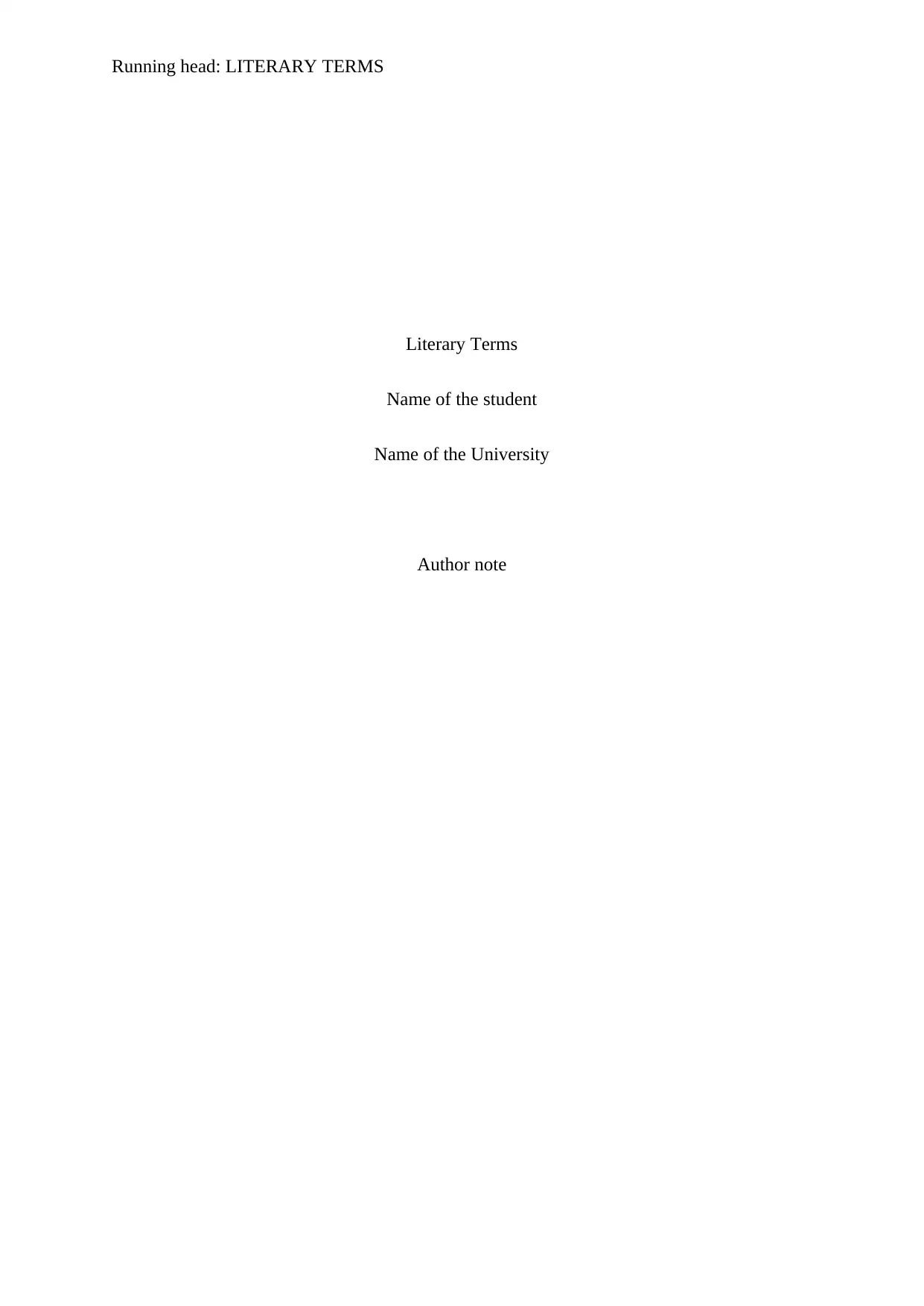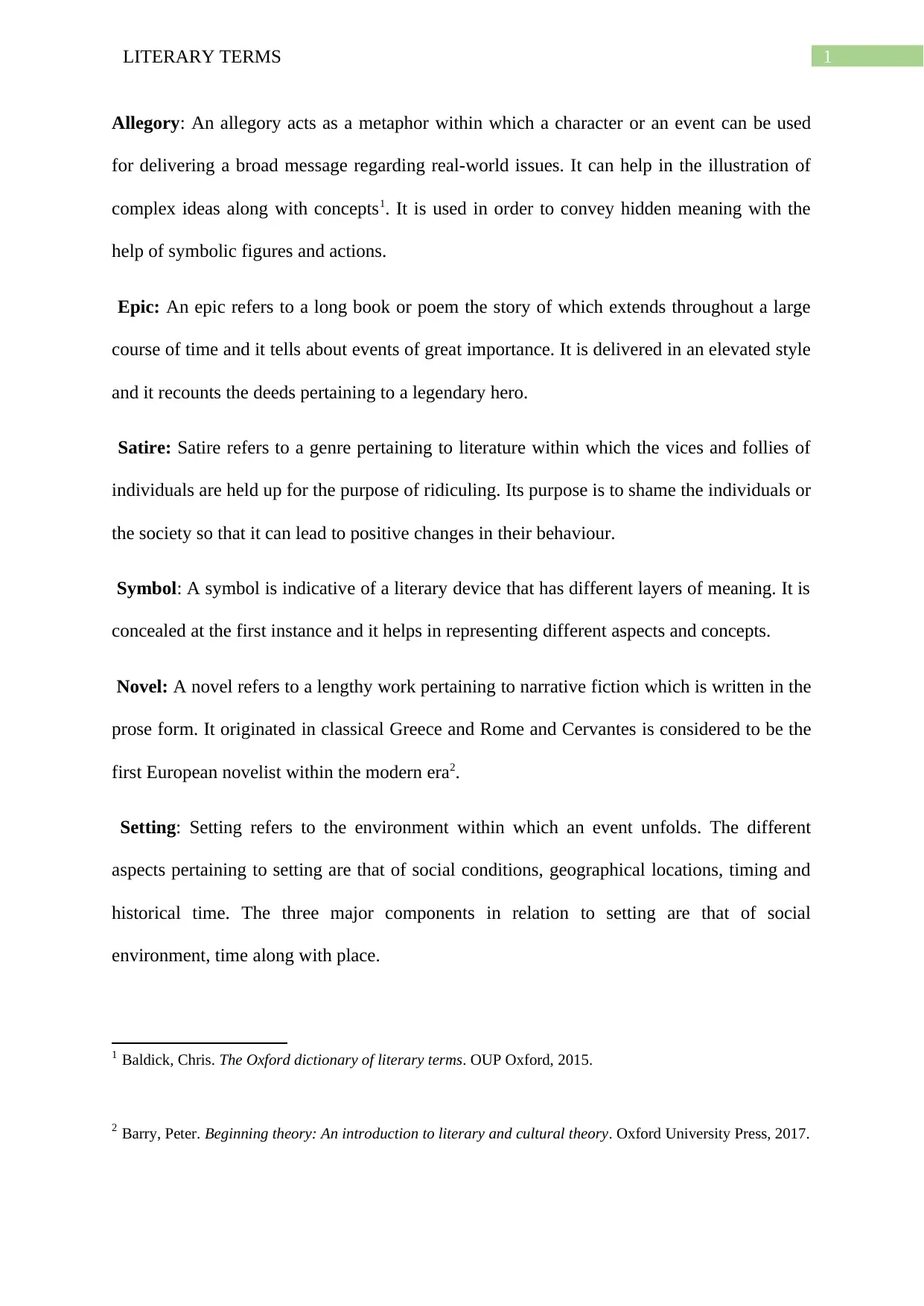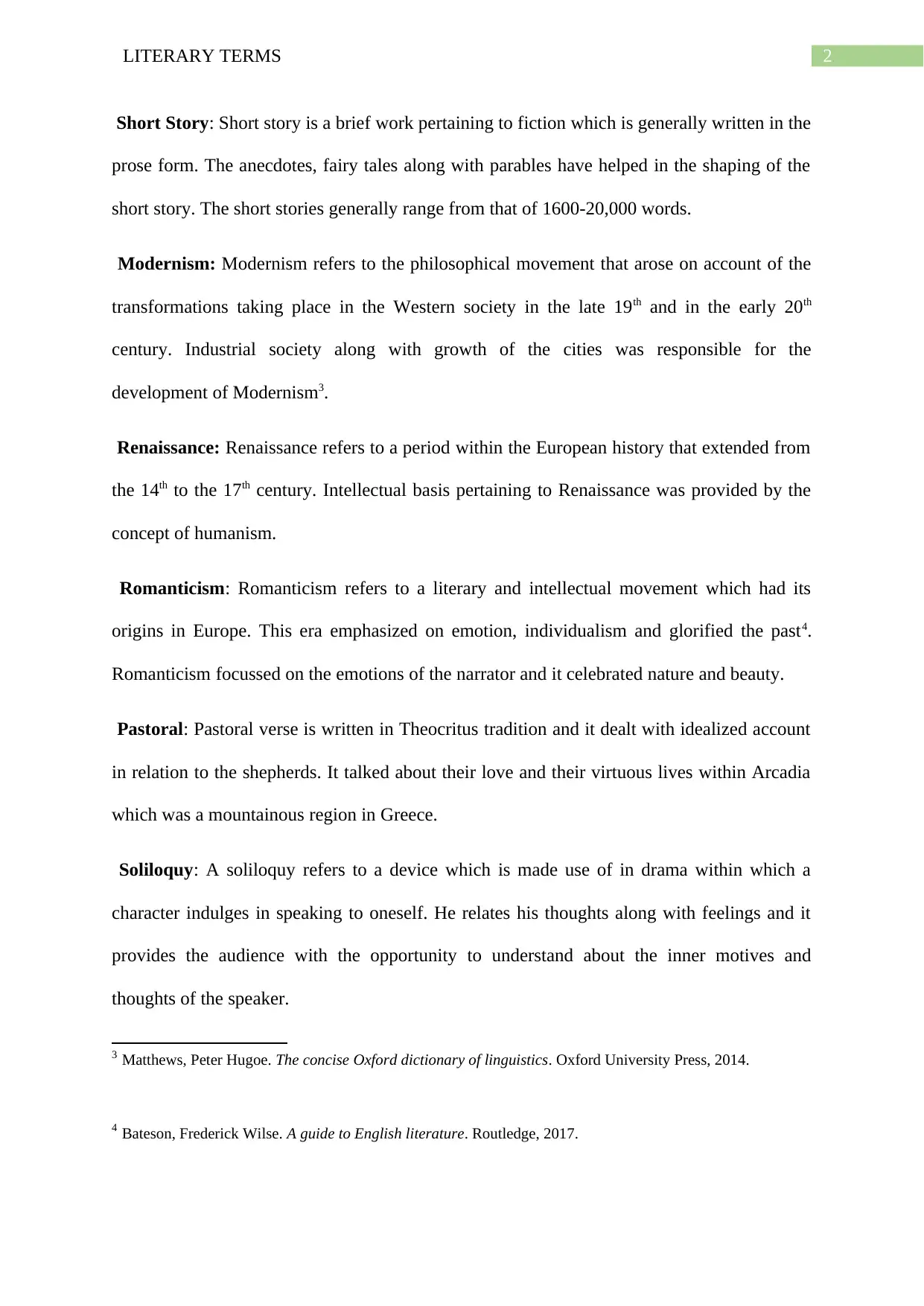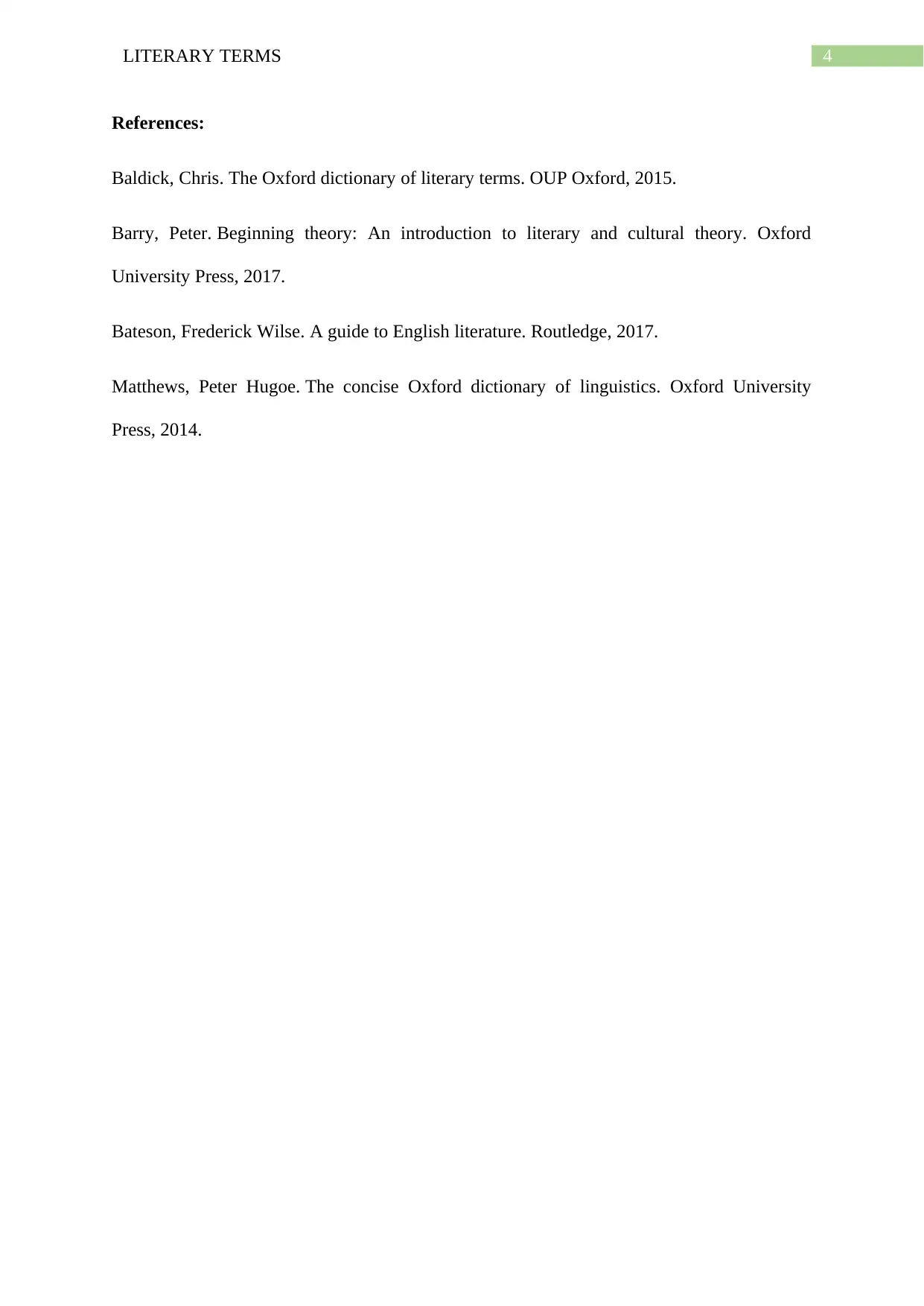Analyzing Literary Terminologies and Their Significance
VerifiedAdded on 2023/06/11
|5
|731
|489
AI Summary
The assignment delves into various critical literary terms crucial for understanding literature. Allegory is examined as a metaphorical device used to convey hidden meanings through symbolic figures and actions. Epic narratives are discussed in terms of their length, style, and legendary heroes. Satire's role in exposing societal flaws through ridicule for reform is analyzed. Symbols' layered meanings in conveying abstract concepts are explored. The novel as an extensive prose narrative form originated from early European literature is detailed. Setting encompasses the environment, time, and place within a story that shapes its context. Short stories' concise narratives and their historical evolution are examined. Modernism's roots in late 19th to early 20th-century societal changes are investigated. The Renaissance period highlights humanism as an intellectual movement. Romanticism emphasizes emotion, individualism, and nature glorification. Pastoral verse depicts idealized shepherd lives in Arcadia, while soliloquy offers insights into characters' inner thoughts through self-dialogue.
1 out of 5







![[object Object]](/_next/static/media/star-bottom.7253800d.svg)